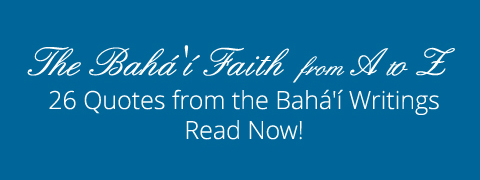| Français |
|
|
The Bahá'ís of Ottawa come
from a variety of backgrounds, brought together by a common belief in
the oneness of humanity and the unity of religion. We work alongside
others to become a force of positive change by applying insights from
the
Bahá'í teachings to bring about a more just, peaceful and unified
community.
|
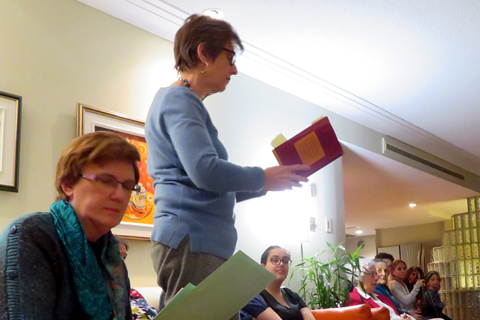 In addition to personal prayer and meditation, Bahá'í communities hold regular devotional gatherings for collective worship. These gatherings unite people in prayer and awaken their spiritual susceptibilities. more... 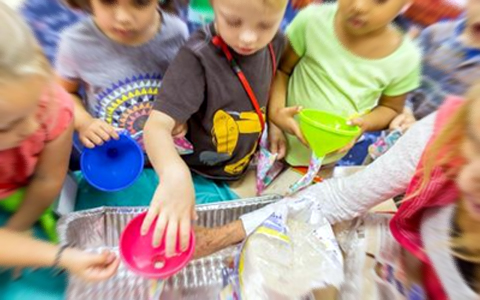 Bahá'í children’s classes are offered to all children between 6 and 10 years old for their spiritual education and moral development. The aim of these classes is to inspire in each child a love for our diverse human family and to cultivate a praiseworthy character. They are guided by the Bahá'í belief that children are noble beings with great potential to develop into upright and active participants in their community. more... 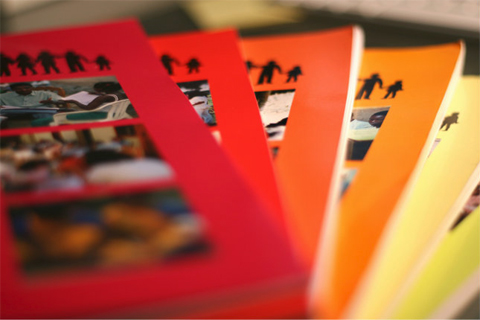 Study circles bring groups of people together to deepen their understanding of the Bahá'í teachings through systematic study. This involves structured group discussion of passages from the Bahá'í writings that encourage reflection on one’s moral purpose and capacities for service. more... 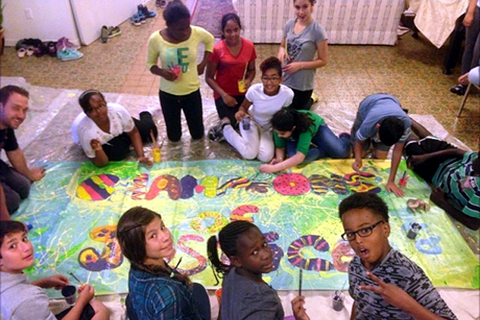 Junior youth – or those between 11 and 14 years – are at a crucial stage in their lives when they are defining their identity and values. Junior youth groups offered by the Bahá'í community address the needs of these young people by helping them to develop a strong moral identity and to empower them to contribute to the well-being of their communities. more... The Bahá'í Faith from A to Z: 26 selected tenets, core beliefs and quotes from the Bahá'í Faith. Read Now! February 10, 2026 OTTAWA ALIVE WITH YOUTH INSTITUTE ACTIVITIES DURING WINTER BREAK *The Bahá'í training institute offers courses open to everyone, inviting them to engage in a global process of learning that is helping to build their capacity to apply the teachings of Bahá'u'lláh to the transformation of society. Its programs and materials enhance the capacity of individuals and communities to serve humanity. From age 5 all the way to adulthood, anyone who is concerned for humanity's future and has a desire for the betterment of the world, is invited to participate. 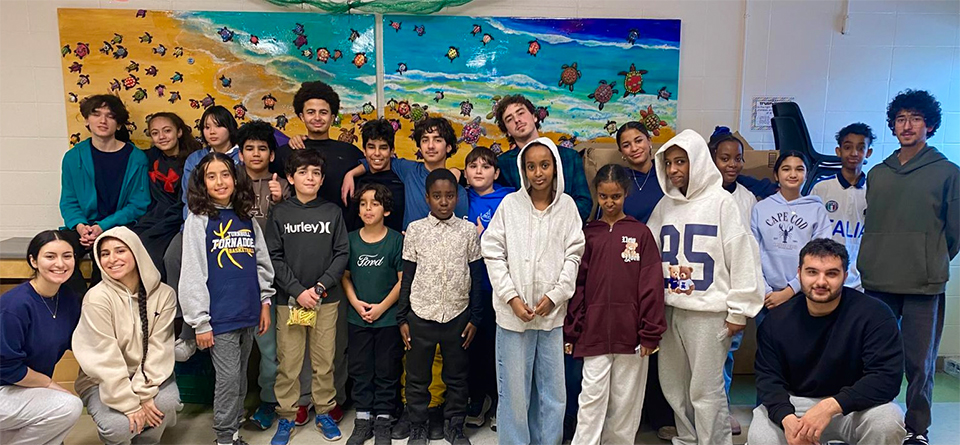 Ottawa was buzzing with activities during the winter break. Of special note were the Institute campaigns* and the junior youth camps that took place throughout the city. For one institute camp, five youth who have been studying Book 5 (Releasing the Powers of Junior Youth) planned a camp that brought together 26 participants. Through their preparation, they were able to do all the parts of the camp on their own: carry out the schedule, help ensure a spirit of excellence permeated in the camp, ran the workshops and other activities, made sure all the cleaning was scheduled after the meals, and that newcomers felt welcome. Through the campaign, four cohorts were able to advance through their study of the institute: one group studied Book 1 (Reflections on the Life of the Spirit), another Book 5, and two junior youth groups went through Drawing on the Power of the Word and Rays of Light. Three mothers also came along to Providence Point to support the camp by cooking. more... January 7, 2026 MUSIC JAM DEVOTIONAL TAKES FLIGHT! by Nathalie Thirlwall Although sounds are but vibrations in the air which affect the ear's auditory nerve, and these vibrations are but chance phenomena carried along through the air, even so, see how they move the heart. A wondrous melody is wings for the spirit, and maketh the soul to tremble for joy. - 'Abdu'l-Bahá, Selections from the Writings of 'Abdu'l-Bahá 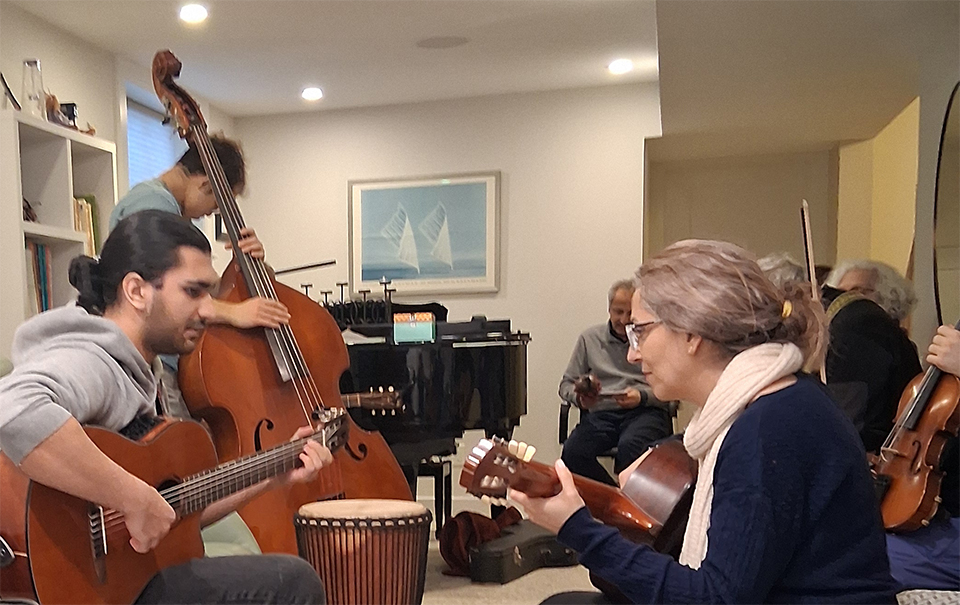 "Music is the ladder to the soul" as the Baha'i teachings inform us. Music has the ability to "lift us up onto the realm on high." The Ottawa Baha'i community has numerous musical escapades that bring joy to the heart. One recent occasion was the music jam devotional held on November 23 initiated by Sylvie Nantais and Natalie Venus. This took place at Sylvie Nantais' home. Musicians contributed their talents and their instruments, and there were some vocals as well. Those who were not musicians, but who wished to join in, were given percussion instruments as a means of adding their rhythms and enjoyment. In all, about a dozen people participated in this joyful event. more...    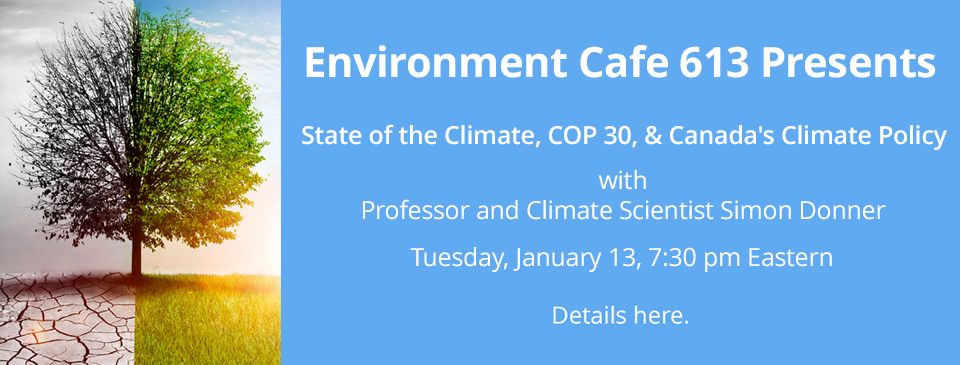 Bookstore, Library and Info-Centre hours: Monday: 11:00 am to 2:00 pm Tuesday: 11:00 am to 2:00 pm Wednesday: Closed Thursday: 11:00 am to 2:00 pm Friday: 11:00 am to 2:00 pm Saturday: 11:00 am to 2:00 pm Sunday: Closed (Note: closed on Bahá'í Holy Days and civic holidays)  |
||
|
|
Home Contact Site Map Web Support
© The Local Spiritual Assembly of the Bahá'ís of Ottawa, Canada




